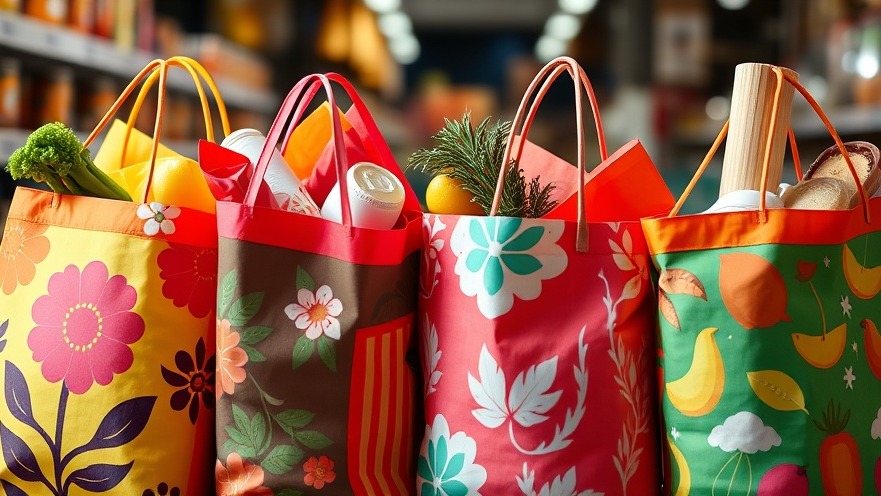
Breaking Up with Single-Use Bags: A Call for Sustainable Action
Retailers in California are launching a campaign inviting a staggering 10 million consumers to "break up with single-use bags." This initiative reflects a broader movement towards sustainability and aims to eliminate waste in consumer habits, especially as we shift towards a circular economy. Single-use plastic bags, once ubiquitous in our daily lives, now face increasing scrutiny for their environmental impact, contributing to pollution and landfill overflow.
The Impact of Single-Use Bags on Our Planet
Every year, millions of single-use plastic bags are produced, used, and discarded within minutes, creating long-term environmental hazards. According to environmental studies, these bags take hundreds of years to decompose, highlighting the urgency of moving towards sustainable alternatives. The upcoming campaign emphasizes a shift in consumer behavior, urging individuals to reconsider their shopping habits and the environment.
Why This Matters for Boutique Hospitality Professionals
For boutique hospitality professionals, this initiative is a vital signal of changing consumer expectations. Guests increasingly prefer eco-friendly accommodations that align with their values regarding sustainability. By embracing practices that reduce waste and promote sustainable packaging, small-scale hotel owners, Airbnb hosts, and eco-lodge operators can enhance their brand appeal and potentially attract a more environmentally conscious clientele.
Incorporating Sustainable Practices into Your Business Model
This campaign not only encourages consumers to take notice but presents an opportunity for boutique businesses to step up their corporate social responsibility (CSR) efforts. Embracing zero waste practices, such as offering reusable bags and sustainable packaging options, can elevate a brand's position in the market. Numerous studies show that sustainable innovation can lead to increased customer loyalty, as guests are more inclined to support businesses that prioritize environmental stewardship.
Actionable Insights: How to Align Your Business with Sustainable Goals
Implementing sustainable practices is easier than many think. Start by reassessing your supply chain for more eco-friendly options. Consider partnering with suppliers who utilize sustainable packaging, or implement a regenerative business model that reinvests profits into eco-improvements. Educate and train your staff to promote sustainability within operations, ensuring your establishment not only supports green initiatives but embodies them.
Looking Ahead: Trends in Sustainable Hospitality
The movement against single-use bags is part of a larger trend toward sustainable practices in various sectors, including hospitality. As consumer awareness grows, industry leaders predict a greater emphasis on regenerative business models and circular economy principles. Expect to see more innovations that prioritize eliminating waste and enhancing the sustainable experience for consumers.
Conclusion: Making a Positive Impact
With initiatives like the one emerging in California, the retail industry is setting a clear precedent for businesses across all sectors. By aligning with these sustainable practices, boutique hospitality professionals can not only enhance their customer experience but also contribute to the health of our planet. As the call to action to eliminate waste gains momentum, there has never been a better time to embrace sustainability in your hospitality business.
In light of these insights, take proactive steps in your business to enhance your sustainability practices and attract a growing number of eco-conscious travelers. Your commitment can lead to a cleaner, greener future for everyone.
 Add Row
Add Row  Add
Add 




Write A Comment